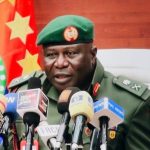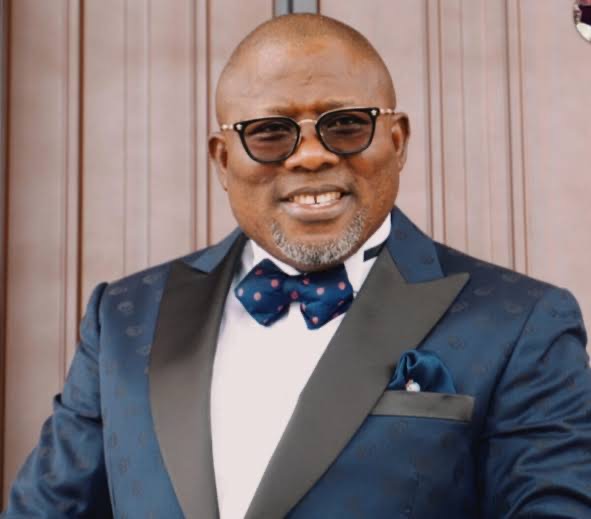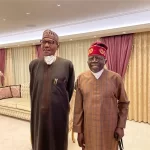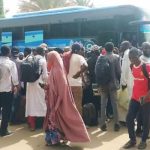The World Health Organisation (WHO) defines Universal Health Coverage (UHC) as a condition in which people have access to healthcare without facing financial hardship.
This suggests that all nationals have free access to the entire range of high-quality healthcare services they require whenever and wherever they need them.
The risk that people will be forced into poverty due to unexpected illness that requires them to use up their life savings, sell assets, or borrow reduces when people are protected from the financial repercussions of paying for health services out of their own pockets.
The risk that people will be forced into poverty due to unexpected illness that requires them to use up their life savings, sell assets, or borrow reduces when people are protected from the financial repercussions of paying for health services out of their own pockets.
Achieving UHC is one of the targets that nations of the world set when they adopted the 2030 Sustainable Development Goals (SDGs) in 2015.
At the United Nations General Assembly High Level Meeting on UHC in 2019, countries reaffirmed that health is a precondition for and an outcome and indicator of the social, economic and environmental dimensions of sustainable development.
According to WHO’s Thirteenth General Programme of Work, one billion more people are targeted to benefit from UHC by 2025, while also contributing to the targets of one billion more people better protected from health emergencies and one billion more people enjoying better health and well-being.
If Nigeria is to meet this 2030 target of the SDG 3, it must improve on its health sector financing.
This was the consensus when some stakeholders gathered in Abuja recently to deliberate on ways to strengthen community systems toward achieving UHC.
To achieve this target, President of the Nigerian Medical Association (NMA), Professor Innocent Ujah, has said the country must strengthen its Primary Health Care system (PHC) and improve health sector financing.
Here in Delta State, Governor Sheriff Oborevwori is headlining moves by the state to meet the 2030 SDG target for universal health coverage.
He is leveraging on the successes recorded by his predecessor, Senator Dr. Ifeanyi Okowa, in ensuring that more Deltans, especially the informal sector, are enrolled into the state’s Contributory Health Commission.
Speaking when he played host to the Association of Community Pharmacists of Nigeria (ACPN), led by its National Chairman, Prince Wale Oladigbolu, and National President of Pharmaceutical Society of Nigeria (PSN), Professor Cyril Osifo, at Government House, Asaba, Oborevwori said accessible and affordable healthcare is non-negotiable for a healthy, vibrant and productive population.
He said that the state government would continue to accord priority attention to the health of Deltans, noting that Delta was the first to implement the mandatory health insurance scheme in the country, with over 1.2m enrollees.
Oborevwori assured that the State Government would continue to partner with the Community Pharmacists to improve healthcare delivery in the state.
The governor further remarked that Delta is a peaceful state and would continue to welcome visitors from all walks of life.
Earlier, Oladigbolu said they were in the state for the National Scientific Conference of the Association, tagged: ‘Asaba 2023’ with the theme: ‘Building Effective Community Pharmacy Services For Universal Health Coverage’.
In another development, Oborevwori assured organised labour of his administration’s commitment to workers’ welfare, saying they remain an integral part of his M.O.R.E Agenda.
He stated this while addressing protesting workers on the hardship caused by fuel subsidy removal by the Federal Government at Government House, Asaba on Wednesday.
Represented by his Senior Policy Adviser, Rt. Hon. Funkekeme Solomon, Oborevwori thanked labour unions for their peaceful protest, assuring that the governor would pass their message to President Bola Tinubu and also address issues of peculiar concern to workers and citizens.
Earlier, State Chairman of the Nigeria Labour Congress (NLC), Comrade Goodluck Ofobruku, said they were at Government House to protest “anti-people and anti-workers policies of the Federal Government against the people of Delta State”.
He said the increase in the price of petrol to over N600, occasioned by the removal of subsidy was way beyond the reach of the average Deltan and workers in the state and country.
On Tuesday, Oborevwori played host to the Inter-Party Advisory Council (IPAC) in Delta during which he acknowledged the contributions of IPAC to the growth of Nigeria’s democracy through its advocacy and public policy analysis.
While restating that IPAC plays a critical role in strengthening democracy, he commended the State Chapter, led by Comrade Emeka Bidokwu, for its maturity, fairness and objectivity in their public statements and actions.
The governor further said that his administration was poised to advance Delta with the M.O.R.E Agenda, which stands for Meaningful Development, Opportunities for all, Realistic Reforms and Enhanced Peace and Security.
Earlier, Bidokwu said the visit was to pledge loyalty to the Oborevwori’s administration, adding that after election it was expedient that all candidates, their supporters and different political parties rally round the winner for the growth and development of the state.
Earlier on Sunday at a thanksgiving service in honour of his Senior Political Adviser, Senator Emmanuel Aguariavwodo, at All Saints’ Cathedral, Ughelli, Oborevwori let out a secret. He told the congregation that the erstwhile senator representing Delta Central, Emmanuel Aguariavwodo, prophesied he could be governor ten years ago.
He recalled that the celebrant told him he could run for governor when he buried his mother in Osubi. He described Aguariavwodo as a rare gem, who had the opportunity of serving both in the Green and Red Chambers of the National Assembly.
Reacting to the rising cost of fuel occasioned by the removal of subsidy, Oborevwori said the state government may consider investment in electric vehicles for mass transportation to mitigate the impact of fuel subsidy removal on the citizens.
He stated this shortly after inspection and test-drive of two electric vehicles presented by Jet Motor Company at Government House, Asaba.
He said he was putting together a Committee to be headed by the Secretary to the State Government (SSG), Dr Kingsley Emu, to look into the economic viability and operational sustainability of electric vehicles in Nigeria.








